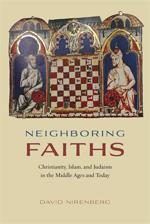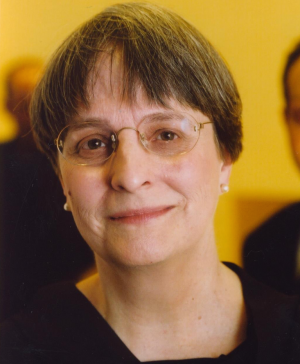
University of Wisconsin-Madison, PhD ' 72
BIOGRAPHY
Kathleen Neils Conzen’s research and teaching has focused on the social and political history of the nineteenth- century United States, with particular concern for themes of immigration, ethnicity, religion, western expansion, and urban development. Much of her research and writing has used the German immigrant experience to explore links between migration processes and community formation; ethnic and other identities; interrelationships among religious, ethnic, and regional cultures; and the political integration of immigrant minorities into the national community. Current projects include explorations of the role of German immigrants in the emergence of California's nineteenth-century wine industry and of German American efforts to develop and defend a theory of pluralistic democratic nationalism.
Recent Research / Recent Publications
-
“German Jews and the German-speaking Civic Culture of Nineteenth-century America.” In American Jewry: Transcending the European Experience? edited by Christian Wiese and Cornelia Wilhelm, 105–24. London and New York: Bloomsbury Academic, 2016.
-
Eva Hofmann Gundlach, Letters and Poems, 1849–1874: From Bavaria to Early San Francisco—A Story of Love and Opportunity, compiled by Lee Sims and translated by Hannah Shield and Kathleen N. Conzen. El Granada, CA: Del Oro Publishing, 2016.
-
“Before the Chicago School: Vernacular Assimilation Theory in Later 19th Century Immigrant Chicago.” In Global Cities—Metropolitan Cultures: A Transatlantic Perspective, edited by Barbara Hahn and Meike Zwingenberger, 101–12. Heidelberg: Universitätsverlag Winter, 2011.
-
“Reshaping the Nation: Federal Employment, Civil Service Reform, and the Turners of Washington, D.C.” In Adolf Cluss und die Turnbewegung: Vom Heilbronner Turnfest 1846 ins amerikanische Exil, edited by Lothar Wieser and Peter Wanner, 79–84. Heilbronn: Stadtarchiv Heilbronn, 2007.
-
“Die Residenzler: German Americans in the Making of the Nation's Capital.” In Adolf Cluss, Architect: From Germany to America, edited by Alan Lessoff and Christof Mauch, 55–67. Washington, D.C.: Historical Society of Washington, D.C. and Heilbronn: Stadtarchiv Heilbronn, 2005.
-
"Immigrant Religion and the Public Sphere: The German Catholic Milieu in America." In German-American Immigration and Ethnicity in Comparative Perspective, edited by Wolfgang Helbich and Walter D. Kamphoefner, 69-114. Madison: Max Kade Institute for German-American Studies, University of Wisconsin-Madison, 2004.
-
Germans in Minnesota. Saint Paul: Minnesota Historical Society Press, 2003.
-
"Ethnicity and Musical Culture among the German Catholics of the Sauk, 1854–1920." In Land without Nightingales: Music in the Making of German-America, edited by Philip V. Bohlman and Otto Holzapfel, 31–71. Madison: University of Wisconsin Press, 2002.
-
"German-Catholic Communalism and the American Civil War: Exploring the Dilemmas of Transatlantic Political Integration." In Bridging the Atlantic: Europe and the United States in Modern Times, edited by Elisabeth Glaser-Schmidt and Hermann Wellenreuther, 119–44. Cambridge: Cambridge University Press, 2002.
-
"Phantom Landscapes of Colonization: Germans in the Making of a Pluralist America." In The German-American Encounter: Conflict and Cooperation between Two Cultures, 1800–2000, edited by Frank Trommler and Elliott Shore, 7–21. New York: Berghahn Books, 2001.
-
"Pi-ing the Type: Jane Grey Swisshelm and the Contest of Midwestern Regionality." In The American Midwest: Essays on Regional History, edited by Andrew L. Cayton and Susan Gray, 91–110. Bloomington: Indiana University Press, 2001.
-
"German Catholics in America." In The Encyclopedia of American Catholic History, edited by Michael Glazier and Thomas J. Shelley, 571–83. Collegeville, Minn.: The Liturgical Press, 1997.
-
"The Winnebago Urban System: Indian Policy and Townsite Promotion on the Upper Mississippi." In Cities and Markets: Studies in the Organization of Human Space, edited by Rondo Cameron, 269–310. Lanham, Md.: University Press of America, 1997.
-
"Forum: The Place of Religion in Urban and Community Studies." Religion and American Culture 6 (1996): 108–14.
-
"The Stories Immigrants Tell." Swedish American Historical Quarterly 46 (1995): 49–57.
-
"A Saga of Families." In Oxford History of the American West, edited by Clyde A. Milner II, Carol A. O'Conner, and Martha A. Sandweiss, 315–57. New York: Oxford University Press, 1994.
-
"Ethnic Patterns in American Cities: Historiographical Trends." In Swedes in America: New Perspectives, edited by Ulf Beijbom, 24–32. Växjö, Sweden: Swedish Emigrant Institute, 1993.
-
"Mainstreams and Side Channels: The Localization of Immigrant Cultures." Journal of American Ethnic History 11 (1991): 5–20.
-
"Immigrants in Nineteenth-Century Agricultural History." In Agriculture and National Development: Views on the Nineteenth Century, edited by Louis Ferleger, 303–42. Ames: Iowa State University Press, 1990.
-
Co-authored with David A. Gerber, Ewa Morawska, George E. Pozzetta, and Rudolph J. Vecoli. "The Invention of Ethnicity." Journal of American Ethnic History 12 (1992): 3–41.
-
"Ethnicity as Festive Culture: German-America on Parade." In The Invention of Ethnicity, edited by Werner Sollors, 44–76. New York: Oxford University Press, 1989.
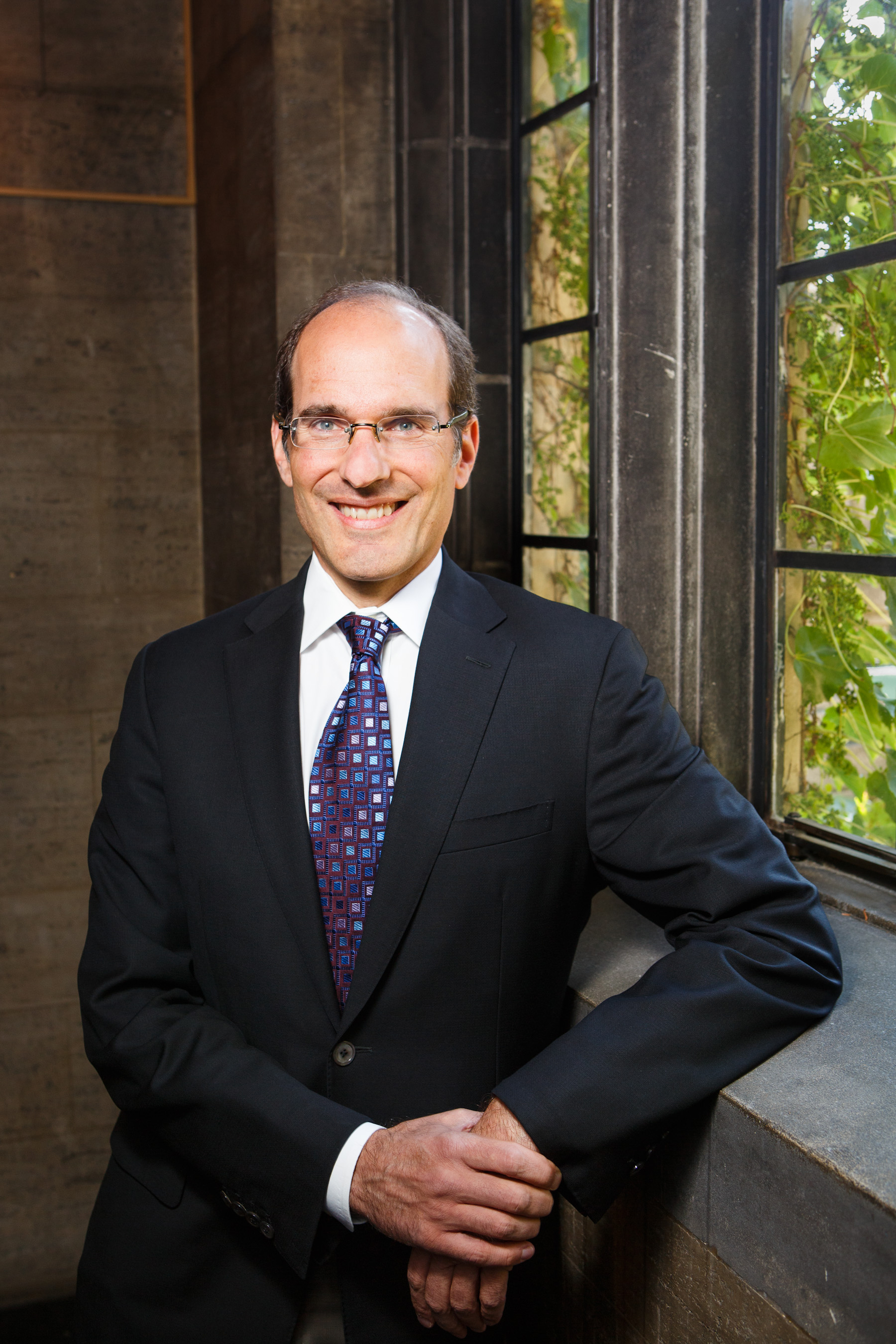
Princeton University, PhD '92
BIOGRAPHY
I have spent most of my intellectual life shuttling between the micro and the macro, trying to understand how life and ideas shape and are shaped by each other. One stream of my work has approached these questions through religion, focusing on the ways in which Jewish, Christian, and Islamic cultures constitute themselves by interrelating with or thinking about each other. My first book, Communities of Violence: Persecution of Minorities in the Middle Ages, studied social interaction between the three groups within the context of Spain and France in order to understand the role of violence in shaping the possibilities for coexistence. In later projects I explored the work that “Judaism,” “Christianity,” and “Islam” do as figures in each other’s thought. One product of that approach, focused on art history, was (jointly with Herb Kessler) Judaism and Christian Art: Aesthetic Anxieties from the Catacombs to Colonialism (2011). In Anti-Judaism: The Western Tradition (2013), I attempted to apply the methodology to a very longue durée, studying the work done by pagan, Christian, Muslim, and secular thinking about Jews and Judaism in the history of ideas. More or less simultaneously in Neighboring Faiths: Christianity, Islam, and Judaism Medieval and Modern (2014), I tried to bring the social into conversation with the hermeneutic, in order to show how, in multireligious societies, interactions between lived experiences and conceptual categories shape how adherents of all three religions perceive themselves and each other. Then in Aesthetic Theology and Its Enemies: Judaism in Christian Painting, Poetry, and Politics (2015), I focused on how thinking about Judaism shaped the ways in which Christian cultures could imagine the possibilities and limits of community and communication.
Beginning with my book Anti-Judaism, which stretched from ancient Egypt to the twentieth century in order to try to understand the work done by a family of concepts across history, I have tried to cultivate a new approach to the “long history” of ideas. My most recent book, Uncountable: A Philosophical History of Number and Humanity from Antiquity to the Present, written in collaboration with Ricardo Nirenberg (a mathematician who happens also to be my father), follows this path as well. It explores the long history of the various types of sameness that underpin the claims of different forms of knowledge (from poetry and dreams, to monotheism, math, and physics), using these to think critically about the powers and the limits of the sciences and the humanities. I am now at work on the long history of yet another family of concepts, namely the inter-connected history of race and religion from the Neolithic to the present.
Recent Research / Recent Publications
Coauthored with Ricardo Nirenberg. Uncountable: A Philosophical History of Number and Humanity from Antiquity to the Present. Chicago, IL: University of Chicago Press, 2021.
Communities of Violence: Persecution of Minorities in the Middle Ages. Princeton, NJ: Princeton University Press, twentieth-anniversary edition with new preface, 2016.
Aesthetic Theology and Its Enemies: Judaism in Christian Painting, Poetry, and Politics. Lebanon, NH: University Press of New England, 2015.
Neighboring Faiths: Christianity, Islam, and Judaism in the Middle Ages and Today. Chicago, IL: University of Chicago Press, 2014.
- Review of Neighboring Faiths and Anti-Judaism by Carlos Fraenkel, "We Hear and We Disobey," London Review of Books (May 21, 2015): 31–34.
Anti-Judaism: The Western Tradition. New York: W.W. Norton, 2013.
- Review by Michael Walzer, "Imaginary Jews," New York Review of Books (Mar. 20, 2014)
- Review by Anthony Grafton, "The Strange History of Antisemitism in Western Culture," New Republic (Oct. 11, 2013)
Discusses book on US Holocaust Memorial Museum podcast
Awarded Ralph Waldo Emerson Award
Communities of Violence: Persecution of Minorities in the Middle Ages. Princeton, NJ: Princeton University Press, 1996; paperback edition, 1998. Spanish translation: Comunidades de Violencia: Persecución de minorías en la edad media. Peninsula Editorial, 2001; French translation: Violence et minorités au Moyen Age. Paris: Presses Universitaires de France, 2001.
- 2000 John Nicholas Brown Prize, Medieval Academy of America
- 1998 Herbert Baxter Adams Prize, American Historical Association
- 1998 Best First Book in Iberian History, Society for Spanish and Portuguese Historical Studies
- 1996 Premio del Rey Prize, American Historical Association
- Coedited with María Elena Martínez and Max Hering Torres. Race and Blood in Spain and Colonial Latin America. LIT-Verlag, 2012.
- Coedited with Herbert Kessler. Judaism and Christian Art: Aesthetic Anxieties from the Catacombs to Colonialism. Philadelphia: University of Pennsylvania Press, 2011.
- "The Impresarios of Trent: The Long and Frightening History of the Blood Libel." Nation (November 16, 2020).
- "What Is Islam? (What Is Christianity? What Is Judaism?)." Raritan 35 (Fall 2016): 1–14.
- "Love." In What Reason Promises: Essays on Reason, Nature, and History, edited by Wendy Doniger, Peter Galison, and Susan Neiman, 46–54. Berlin: De Gruyter, 2016.
- With Leonardo Capezzone. "Religions of Love: Judaism, Christianity, Islam." In The Oxford Handbook of the Abrahamic Religions, edited by Adam Silverstein and Guy G. Stroumsa, 518–535. Oxford: Oxford University Press, 2015.
- "Power and Piety: Is the Promotion of Violence Inherent to Any Religion?" Nation (Apr. 29, 2015).
- "Posthumous Love in Judaism." In Love After Death: Concepts of Posthumous Love in Medieval and Early Modern Europe, edited by Bernhard Jussen and Ramie Targoff, 55–70. Berlin: De Gruyter, 2015.
- "'Judaism' as Political Concept: Toward a Critique of Political Theology." Representations 128 (Fall 2014): 1–29.
- "'Judaism,' 'Islam,' and the Dangers of Knowledge in Christian Culture, with Special Attention to the Case of King Alfonso X, 'the Wise,' of Castile." In Mapping Knowledge: Cross-Pollination in Late Antiquity and the Middle Ages. Arabica Veritas, vol. I, edited by C. Burnett and P. Mantas-España, 253–76. Cordoba: Oriens Academica, 2014.
- "Sibling Rivalries, Scriptural Communities: What Medieval History Can and Cannot Teach Us about Relations between Judaism, Christianity, and Islam." In Faithful Narratives, edited by Andrea Sterk and Nina Caputo, 63–82. Ithaca, NY: Cornell University Press, 2014.
- "Christian Love, Jewish 'Privacy,' and Medieval Kingship." In Center and Periphery: Studies on Power in the Medieval World, edited by Katherine L. Jansen, G. Geltner, and Anne E. Lester, 25–37. Leiden: Brill, 2013.
- Coauthored with Ricardo Nirenberg. "Badiou's Number: A Critique of Mathematical Ontology." Critical Inquiry 37, no. 4 (2011): 583–614. Response by Alain Badiou and a reply by us, "Critical Response." Critical Inquiry 38 (2012): 362–87.
- "From Cairo to Cordoba." Nation (June 1, 2011).
- "When Philosophy Mattered." New Republic (Feb. 3, 2011): 39–43.
- "Shakespeare's Jewish Questions." Renaissance Drama (2010): 77–113.
- "Double Game: Maimonides in his World." London Review of Books (Sept. 23, 2010): 31–32.
- "Anti-Zionist Demography." Dissent (Spr. 2010): 103–9.
- Interviewed on anti-Semitism for The New Yorker, 2020
- Writes op-ed on Facebook's hate speech policy, Tablet Magazine, 2019
- Appointed interim dean of the Divinity School, 2018
- Appointed executive vice provost
- Quoted in an Atlantic article on Charlottesville and anti-Semitism
- Awarded 2017 Historikerpreis der Stadt Münsters for his body of work
- Delivers the University of Chicago 527th Convocation Address [video, 12 minutes]
- Awarded Doctor of Philosophy, Honoris Causa, University of Haifa, 2016
- Elected to the American Academy of Arts and Sciences
- Publishes Aesthetic Theology and Its Enemies: Judaism in Christian Painting, Poetry, and Politics (Brandeis, 2015)
- Delivers 2015 Harper Lecture on Religion and Violence [video, 79 minutes]
- Publishes Neighboring Faiths: Christianity, Islam, and Judaism in the Middle Ages and Today (Chicago, 2014).
- Appointed a Fellow of the Medieval Academy of America
- Appointed Dean of the Social Sciences Division
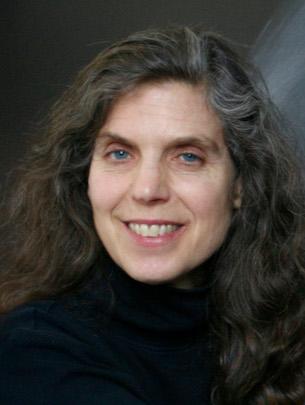
Yale University, PhD '90
BIOGRAPHY
Amy Dru Stanley is a historian of the United States, with particular interest in law, capitalism, freedom and unfreedom, human rights, the relationship between the household and economic life, and the historical experience of moral problems. Her work has appeared in scholarly books and journals, as well as in the New York Times, the Washington Post, the Nation, Dissent, Slate, and Jacobin. She has received the Quantrell Award for Excellence in Undergraduate Teaching and the Faculty Award for Excellence in Graduate Teaching and Mentoring. In 2018, she was the jury chair for the Pulitzer Prize in history.
Recent Research / Recent Publications
The Antislavery Ethic and the Spirit of Commerce: An American History of Human Rights. Cambridge, MA: Harvard University Press, forthcoming.
From Bondage to Contract: Wage Labor, Marriage and the Market in the Age of Slave Emancipation. Cambridge: Cambridge University Press, 1998.
- Frederick Jackson Turner Prize, 1999. (For the best first book in US History, awarded by the Organization of American Historians.)
- Morris D. Forkosch Award, 1999. (For the best book in intellectual history.)
- Avery O. Craven Award, 1999. (For the best book on the era of the Civil War and Reconstruction, awarded by the Organization of American Historians.)
- Frederick Douglass Prize, 1999, honorable mention. (For the best book on the history of slavery.)
- “The Free Sea: An Antislavery Idea of Human Rights,” in Cambridge History of Human Rights, edited by Jennifer Pitts and Daniel Edelstein, 2025.
- "The Sovereign Market and Sex Difference: Human Rights in America." In American Capitalism: New Histories, edited by Sven Beckert and Christine Desan. New York: Columbia University Press, 2018.
- "Histories of Capitalism and Sex Difference." Journal of the Early Republic 36, no. 2 (Sum. 2016).
- "Slave Emancipation and the Revolutionizing of Human Rights." In The World the Civil War Made, edited by Greg Downs and Kate Masur. Chapel Hill: University of North Carolina Press, 2015.
- “Contract.” In Keywords for American Cultural Studies, 2nd ed., edited by B. Burgett and G. Hendler. New York: New York University Press, 2014.
- "Slave Breeding and Free Love: An Antebellum Argument over Slavery, Capitalism, and Personhood." In Capitalism Takes Command, edited by Michael Zakim and Gary Kornblith. Chicago: University of Chicago Press, 2012.
- "Instead of Waiting for the Thirteenth Amendment: The War Power, Slave Marriage, and Inviolate Human Rights." American Historical Review 115, no. 3 (June 2010).
- "When We Were Young." In Wayne F. Miller: Photographs 1942–1958, edited by Stephen Daiter. Brooklyn: Powerhouse Books, 2008.
- "Wages, Sin, and Slavery: Some Thoughts on Free Will and Commodity Relations." Journal of the Early Republic 24 (Sum. 2004).
- "Dominion and Dependence in the Law of Freedom and Slavery." Law & Social Inquiry 28, no. 3 (Aut. 2003).
- "Marriage, Property, and Ideals of Class." In Blackwell's Companion to American Women's History, edited by Nancy Hewitt. Oxford: Blackwell Press, 2002.
- "The Right to Possess All the Faculties that God Has Given: Possessive Individualism, Slave Women, and Abolitionist Thought." In Moral Problems in American Life, edited by Lewis Perry and Karen Halttunnen. Ithaca, NY: Cornell University Press, 1999.
- "'We Did Not Separate Man and Wife, But All Had to Work': Freedom and Dependence in the Aftermath of Slave Emancipation" in Terms of Labor: Slavery, Serfdom, and Free Labor, edited by Stanley Engerman, Stanford University Press, 1999.
- "Home Life and the Morality of the Marketplace: Slavery and Freedom, Women and Men." In The Market Revolution in America, edited by Melvyn Stokes. Charlottesville: University of Virginia Press, 1996.
- "Beggars Can't Be Choosers: Compulsion and Contract in Postbellum America." Journal of American History 78, no. 4 (Mar. 1992).
- "Conjugal Bonds and Wage Labor: Rights of Contract in the Age of Emancipation." Journal of American History 75, no. 2 (Sept. 1988).
- Writes "Freedom for Sale" for Dissent Magazine on academic freedom and American history teaching
- Quoted in the Globe and Mail article, "Donald Trump has taken aim at what he calls the ‘woke’ view of American history"
- Quoted in the NYT article, "Juneteenth Reminds Us to Think About Economic Freedom, Not Just Legal Liberty"
- Quoted in the Washington Post on polarization, the history of race in the US, and the GOP
- Comments on the Florida Board of Education's guidelines on teaching Black history in Newsweek
- Co-writes with Craig Becker for the New York Times on Amazon's opposition to mail-in ballot unionization votes
- Writes for the Washington Post on the Commerce Clause and pandemic liability protection for businesses
- Quoted in the Burlington Free Press on the history of the Confederate Flag
- Quoted in the Pittsburgh Post-Gazette on the meaning of Chicago 1968
- Chairs 2018 Pulitzer Prize for History Jury
- Writes for Slate on the abolition of slavery, theatergoing, and the right to happiness
- Named an OAH Distinguished Lecturer
- Kyle Volk, PhD'08, Praises Stanley's Scholarship on the Oxford University Press blog
- Participates on Yale Panel on the 14th Amendment
- Amy Dru Stanley and Jonathan Levy Embark on New Study of the Economy
- Coorganizes "Human Trafficking, Labor Migration, and Migration Control in Comparative Historical Perspective" conference, Pozen Family Center for Human Rights
- Writes for the New York Times Opinionator blog on the Civil War Enlistment Act

Yale University, PhD '09
BIOGRAPHY
I am an historian of modern Russia, with a special interest in nineteenth- and twentieth-century politics, culture, and ideas. My work explores how Russia's peculiar political institutions—and its status as a multiethnic empire—shaped public opinion and political cultures. It also interrogates Russia's relationship with the outside world, asking where the Russian experience belongs in the broader context of European and global history. In addition, I am interested in the theory and practice of the digital humanities.
I am currently working on a new history of the origins of the Protocols of the Elders of Zion written for a popular audience. This book offers a new account of how this notorious text came to be, and it asks what history's greatest conspiracy theory can tell us about the present moment, when conspiratorial thinking is again on the rise in society and politics.
My most recent book, Utopia’s Discontents: Russian Exiles and the Quest for Freedom, 1830–1930, was published by Oxford University Press in 2021. It is the recipient of the 2022 Wayne S. Vucinich Book Prize from ASEEES, which recognizes the most important contribution in any discipline of Slavic studies. The book provides the first synthetic account of Europe's "Russian colonies"—boisterous and politically fractious communities formed by exiles from the Russian empire that emerged across the continent in the nineteenth and early twentieth centuries. The book treats the "Russian colonies" as utopian communities in which radical activists worked to transform social relations and individual behavior, and it explores how these unique spaces influenced Russian political imaginaries as well as the culture of their host societies. Ultimately, the project offers a bold reassessment of Russia's relationship with Europe, the origins of the Russian revolution, and the creation of the Bolshevik regime.
My first book, Children of Rus’: Right-Bank Ukraine and the Invention of a Russian Nation, was published by Cornell University Press in 2013 and released in paperback in 2017. Children of Rus' argues that it was on the extreme periphery of the tsarist empire—a region that today is located at the very center of the independent nation of Ukraine—that Russian nationalism first took shape and assumed its most potent form. The book reconstructs how nineteenth-century provincial intellectuals came to see local folk customs as the purest manifestation of an ancient nation that unified all the Orthodox East Slavs, and how they successfully propagated their ideas across the empire through lobbying and mass political mobilization. In addition, it reconceptualizes state-society relations under tsarism, showing how residents of a diverse and contested peripheral region managed to shape political ideas and identities across Russia—and even beyond its borders. Children of Rus' was named a Choice Outstanding Academic Title for 2013.
My current research is enriched by technology, and I am interested in thinking through how historians can use digital tools to open new avenues for exploration and to communicate their findings to other scholars and the general public. I am particularly interested in using geo-spatial analysis to analyze flows of people, ideas, and commodities over time and across space. For examples of my (ongoing) work in digital cartography, see my Utopia's Discontents website in development and my study of émigré publications.
I have held research fellowships at Columbia, Harvard, and the Cullman Center for Scholars and Writers at the New York Public Library. My research has been funded by ACLS, IREX, Fulbright-Hays, and the NEH.
I am represented by Kathleen Anderson (kathleen@andersonliterary.com) of Anderson Literary Management.
Recent Research / Recent Publications
- Utopia’s Discontents: Russian Émigrés and the Quest for Freedom, 1830s-1930s, Oxford University Press, 2021. Awarded the 2022 Wayne S. Vucinich Prize.
- "'The Franco-Russian Marseillaise': International Exchange and the Making of Anti-Liberal Politics in Fin-de-Siècle France." Journal of Modern History 89, no. 1 (Mar. 2017): 39–78.
- "Children of Rus’: Nationalist Imaginations in Right-Bank Ukraine." In The Future of the Past: New Perspectives in Ukrainian History, edited by Serhii Plokhy. Cambridge, MA: Harvard University Press, 2016.
- "Making and Breaking the Russian Empire: The Case of Kiev’s Shul’gin Family." In Imperiale Biographien: Elitekarrieren im Habsburger, Russischen und Osmanischen Vielvölkerreich (1850–1918), edited by Malte Rolf and Tim Buchen, 178–98. Munich: Oldenbourg-Verlag, 2015.
- "Intimacy and Antipathy: Russian-Ukrainian Relations in Historical Perspective." Kritika 16, no. 1 (Win. 2015): 121–28.
- Children of Rus': Right-Bank Ukraine and the Invention of a Russian Nation. Ithaca, NY: Cornell University Press, 2013.
- "Modernist Visions and Political Conflict in Late Imperial Kiev." In Races to Modernity: Metropolitan Aspirations in Eastern Europe, 1890–1940, edited by Jan C. Behrends and Martin Kolrausch. New York: Central European Press, 2014.
- "Ukrainophile Activism and Imperial Governance in Russia's Southwestern Borderlands." Kritika 13, no. 2 (Spr. 2012): 301–26.
- "Migration, Mobility, and Political Conflict in Late Imperial Kiev." In Russia on the Move: Essays on the Politics, Society and Culture of Human Mobility, 1850–Present, edited by John Randolph and Eugene Avrutin. Urbana: University of Illinois Press, Studies of World Migrations Series, 2011.
- Writes op-ed on seizing Russian oligarchs' wealth for The Atlantic
- Interviewed for Meduza on Putin's presentation of Ukrainian and Soviet history
- Quoted in USA Today article on how historians see the invasion of Ukraine
- Quoted in Politifact on the history of Russian imperialism
- Interviewed for The World on the entangled histories of Russia and Ukraine
- Writes op-ed on immigration for The Washington Post
- Quoted in Chicago Tribune article on the meaning of "concentration camp"
- Named a 2018–19 Cullman Center Fellow at the New York Public Library
- Review of AHA session on "History and Historians in the Ukraine Crisis" by Sarah Fenton
- Quoted in National Geographic article on Ukrainian-Russian conflict
- Children of Rus' reviewed in the Moscow Times
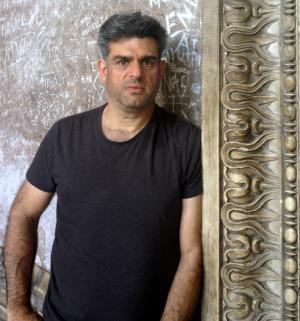
Harvard University, PhD '96
BIOGRAPHY
Emilio Kourí's main scholarly interest is in the history of rural Mexico since Independence, including society, economy, politics, culture, and the law. He is the author of A Pueblo Divided: Business, Property, and Community in Papantla, Mexico. It tells the story of the strife-ridden transformation of rural social relations in the Totonac region of Papantla during the course of the nineteenth century, paying particular attention to how the progressive development of a campesino-based international vanilla economy changed and ultimately undermined local forms of communal landholding. A Pueblo Divided received the 2005 Bolton-Johnson Prize from the Conference on Latin American History (CLAH) and the 2005 Erminie Wheeler-Voegelin Prize (Honorable Mention) from the American Society for Ethnohistory. He is also the editor of En busca de Molina Enríquez: cien años de Los Grandes Problemas Nacionales and co-editor of Revolución y exilio en la historia de México: Homenaje a Friedrich Katz.
He is at work on a three-volume history of communal landholding in Mexico. Volume One examines the evolving meaning and practice of communal land tenure in Mexican villages during the 18th and 19th centuries, focusing on changes brought about by agricultural commerce and commodification, population growth and mobility, socio-economic differentiation within and beyond villages, and the haphazard implementation of a multiplicity of liberal disentailment laws. Volume Two focuses on the Zapatista movement of the Mexican Revolution, offering a revisionist interpretation of its agrarian and political goals and practices and of its place in the land reform that would follow its demise. Volume Three explains the legal, political, and ideological origins of the collective land-grant community (ejido) created by the Mexican Revolution between 1915 and 1934. By 1992, when a constitutional amendment ended the redistribution program, more than two thirds of Mexico’s arable lands and forests were at least nominally in the hands of these land-grant communities—the most extensive state-managed land tenure transformation in the history of modern Latin America. Historians have long regarded the communal character given to ejido property as a return to forms of social organization rooted in Mexico’s indigenous past, and have considered it to be the fulfillment, at least in principle, of what villagers like Emiliano Zapata had long demanded and fought for. Against prevailing interpretations, Volume Three argues that the new ejido of the Revolution was not what country people (and especially the Zapatistas) had battled for. Rather, it was the piecemeal product of idealized notions of indigenous communal organization and historical practice hastily contrived by the "progressive" elites who won the Revolution and who were then compelled in fits and starts to make expedient agrarian reforms in order to build sorely needed popular political allegiances.
He teaches classes and seminars on land reforms, rural ecologies and social movements, indigenous societies, and the history of agrarian thought, as well as general courses on Latin American and Latino/a history, and is director of the Katz Center for Mexican Studies.
Recent Course Offerings
-
Tropical Commodities in Latin America
-
Latin American History Seminar
-
Zapatista Social Movements, Old and New
-
Agrarian Reform in Twentieth-Century Mexico
-
The History of Mexico, 1876 to the Present
-
Pre-Columbian and Early Colonial Latin America
-
US Latinos: Origins and Histories
-
Latin American Civilizations
Recent Research / Recent Publications
- "On the Mexican Ejido." Humanity 11.2.
- “Chico Franco y Nicolás Zapata.” Revista NEXOS (August 2019).
- “El alma perdida del Plan de Ayala.” Revista NEXOS (July 2019).
- "La caja de hojalata." Revista NEXOS (June 2019).
- "El ejido de Anenecuilco." Revista NEXOS (May 2019).
- "La historia al revés." Revista NEXOS (Apr. 2019).
- "Sobre la propiedad comunal de los pueblos: De la Reforma a la Revolución." Historia Mexicana (264) 66, no. 4 (Apr.–June 2017): 1,923–60.
- "La promesa agraria del artículo 27.” Revista NEXOS (Feb. 2017).
- "La invención del ejido." Revista NEXOS (Jan. 2015).
- "Claroscuros de la reforma agraria mexicana." Revista NEXOS (Dec. 2010).
- Revolución y exilio en la historia de México: Homenaje a Friedrich Katz. Coedited with Javier Garciadiego. Mexico: Ediciones Era, coedition with the Colegio de México and the Katz Center for Mexican Studies, 2010.
- Editor. En busca de Molina Enríquez: cien años de Los Grandes Problemas Nacionales. Mexico: coedition with the Colegio de México and the Katz Center for Mexican Studies, 2009.
- "Manuel Gamio y el Indigenismo de la Revolución Mexicana." In Historia de los intelectuales en América Latina, vol 2, edited by Carlos Altamirano. Buenos Aires: Katz Editores, 2010
- "John Womack: sobre historia e historiadores." Revista Temas (2008). Interview.
- "Aspectos económicos de la desamortización de las tierras de los pueblos." In España y México, ¿Historias económicas paralelas?, edited by Rafael Dobado, Aurora Gómez Galvarriato, and Graciela Márquez. Mexico City: Fondo de Cultura Económica, 2007.
- A Pueblo Divided: Business, Property, and Community in Papantla, Mexico. Stanford: Stanford University Press, 2004.
- "Interpreting the Expropriation of Indian Pueblo Lands in Porfirian Mexico: The Unexamined Legacies of Andrés Molina Enríquez." The Hispanic American Historical Review 82, no. 1 (Feb. 2002).
- "El comercio de exportación en Tuxpan, 1870–1900." In El siglo XIX en las Huastecas, México, edited by Antonio Escobar Ohmstede and Luz Carregha Lamadrid. Mexico City: Centro de Investigaciones y Esudios Superiores en Antropología Social, 2002.
- "Economía y comunidad en Papantla: reflexiones sobre 'la cuestión de la tierra' en el siglo XIX." In Estructuras y formas agrarias en México: del pasado al presente, edited by Antonio Escobar Ohmstede and Teresa Rojas Rabiela, 197–214. Mexico City: Centro de Investigaciones y Esudios Superiores en Antropología Social, 2001.
- "La vainilla de Papantla: Agricultura, comercio y sociedad rural en el siglo XIX." Signos Históricos 3 (2000).
- "Lo agrario y lo agrícola: reflexiones sobre el estudio de la historia rural posrevolucionaria." Boletín del Archivo General Agrario 3 (July 1998).
- Joins panel discuss on Mexico's presidential election, Chicago Council on Global Affairs, Jan. 28, 2019
- Delivers a talk on "Friedrich Katz Agraian Mexico," Freie Universität Berlin
- Discusses Article 27 of the Constitution of Mexico, Revista NEXOS, Feb. 2017
- Discusses agrarian reforms, "La invención del ejido," iRevista NEXOS, Jan. 2015
- Hosts the XIV Reunión Internacional de Historiadores de México as director of the Katz Center for Mexican Studies, University of Chicago
- Advised curators on the exhibit, "Researching Mexico: University of Chicago Field Explorations in Mexico, 1896–2014," Special Collections. Seonaid Valiant, PhD '14, cocurated the show.
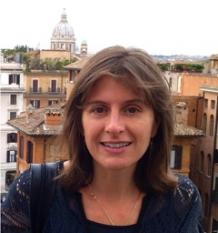
Harvard University, PhD '99
BIOGRAPHY
I am a historian of inequality and its persistence. I specialize in the study of Brazil and Latin America, and focus particularly on informality, cities, citizenship, law, migration, race, slavery and its afterlives.
My first book, A Poverty of Rights (Stanford, 2008), examines how weak citizenship rights and residential informality came to define urban poverty, popular social struggles, and the political dynamics of inequality in modern Brazil. It received book awards from the Social Science History Association, the Urban History Association, the Conference on Latin American History, and the Brazilian Studies Association.
A volume I coedited with Bryan McCann and Javier Auyero, Cities from Scratch (Duke, 2014), explores the many ways in which poverty and informality have shaped the Latin American urban experience. My essay, "A Century in the Present Tense," explores the intellectual history of the informal city, arguing that slums and shantytowns are dynamic historical phenomena in their own right rather than perpetual symptoms of current crises. In various other essays and ongoing research, I have focused on informality's relationship to developmentalism and political liberalism, slavery, racial inequality in law and urban space, criminal law, internal migrations, and the relationship between the urban poor and Brazil’s political left.
Along with Brazilian historian Keila Grinberg, I have edited a volume entitled The Boundaries of Freedom, which brings together essays by leading Brazilian and Brazilianist scholars of slavery and its afterlives. My own essay, “Slavery, Freedom and the Relational City,” focuses on how unfreedoms born of slavery continued to bind urban free and freedpeople during Brazil’s age of abolition.
My current book, Intimate Inequalities: Urbanism, Slavery, and Bounded Freedom in a Brazilian City, explores the historical co-evolution of urbanism and informality. The book is based in Recife, Brazil, a northeastern city that came to be seen as both the capital of Brazilian underdevelopment and the incubator of some of the country's most innovative social and cultural movements. Recife originated as a slave city, and the social and power relations that had sustained slavery continued to structure it long after abolition in 1888. Like many other cities across the globe, Recife evolved as a place where modern technologies, economies, and liberal institutions coexisted with and depended upon urban informality. Formal institutions and economies were embedded in an essentially relational city, in which personal connections mediated economic and political life and deep inequality structured vital (and often violent) intimate interdependencies. In the twentieth century, relational power proved remarkably adaptable, inhabiting liberal institutions and radical social movements, structuring "political society," and doing much to explain both social mobility and inequality's resilience. In exposing the microhistory of this phenomenon in Recife, I explore the emergence of urban informality as part and parcel of modern governance and bring into a focus a paradigm of urban modernity that shapes city life across the globe.
Other ongoing projects focus on the "Rights to the City" movement in law, political philosophy, and practice; and the global history of urban informality through a collaborative project entitled "La Ville informelle au XXe siècle: politiques urbaines et administration des populations."
At Chicago, I am part of the Faculty Advisory Committees for the Mansueto Institute for Urban Innovation, the Art and Architecture Committee and the Latin America Faculty Working Group; and I am a Faculty Affiliate at the Center for Latin American Studies and the Center for the Study of Race, Politics, and Culture. Outside of the University, I serve on the editorial boards of Past & Present and the Journal of Latin American Studies, as well as the international Advisory Committee for the Centro de Estudos da Metrópole in São Paulo and the board of the Urban History Association. My teaching focuses both on my core research interests and on the larger histories of Brazil, Latin America, cities, and social inequality. Before coming to Chicago, I taught at Amherst College and Northwestern University.
Recent Research / Recent Publications
- The Boundaries of Freedom: Slavery, Abolition, and the Making of Modern Brazil, co-edited with Keila Grinberg. Cambridge University Press, 2022.
- Cities from Scratch: Poverty and Informality in Urban Latin America, co-edited with Bryan McCann, and Javier Auyero. Durham, NC: Duke University Press, 2014.
- A Poverty of Rights: Citizenship and Inequality in Twentieth-Century Rio de Janeiro. Stanford: Stanford University Press, 2008 (paperback, 2011).
- The Boundaries of Freedom: Slavery, Abolition, and the Making of Modern Brazil, co-edited with Keila Grinberg, in production, Cambridge University Press.
- “Historicizing Informal Governance in 20th Century Brazil,” Contemporary Social Science, May 2021.
- "A ética do silêncio racial no contexto urbano: políticas públicas e desigualdade social no Recife, 1900-1940," Anais do Museu Paulista, 28 (2020): 1-45.
- “From the Mocambo to the Favela: Statistics and Social Policy in Brazil’s Informal Cities,” Histoire et Mesure 34, no. 1 (2019): 15-40.
- “Favelas and Politics in Brazil, 1890-1960,” in William Beezley, ed., Oxford Research Encyclopedia, Latin American History, Oxford University Press, 2019.
- "Urban Informality and the Paradoxes of Developmental State Building," in State and Nation Making in Latin America and Spain: The Rise and Fall of the Developmental State, edited by Miguel Centeno and Agustín Ferraro. Cambridge: Cambridge University Press, 2018.
- "Ethos and Pathos in Millennial Brazil." Latin American Research Review 53, no. 2 (June 2018): 394–402.
- "Law, Silence and Racialized Inequalities in the History of Afro-Brazil," with Keila Grinberg and Hebe Mattos. In Afro-Latin American Studies: An Introduction, edited by Alejandro de la Fuente and George Reid Andrews. Cambridge: Cambridge University Press, 2018, 130–78.
- "Beyond Insurgency and Dystopia: The Role of Informality in Brazil’s Twentieth-Century Urban Formation." In Public Goods versus Economic Interests: Global Perspectives on the History of Squatting, edited by Freia Anders and Alexander Sedlmaier. New York: Routledge, 2016, 122–49.
- "The Red Menace Reconsidered: A Forgotten History of Communist Mobilization in Rio's Favelas, 1945–1964." Hispanic American Historical Review 94, no. 1 (2014): 1–33.
- "Urban History." In Oxford Bibliographies Online (2013)
- "Democracy, Thuggery, and the Grassroots: Antoine Magarinos Torres and the União dos Trabalhadores Favelados in the Age of Carioca Populism." Nuevo Mundo–Mundos Nuevos, Colloquium: "Repensando los populismos en América Latina," February 2013.
- "Partindo a cidade maravilhosa" (Dividing the Marvelous City). In Quase cidadão: histórias e antropologias da pós-emancipação no Brasil, edited by Flávio dos Santos Gomes and Olívia Maria Gomes da Cunha. Rio de Janeiro: Editora da Fundação Getúlio Vargas, 2007, 419–50.
- "Direitos por lei, ou leis por direito?" (Rights by Law or Laws by Right?). In Direitos e justiças no Brasil: Histórias plurais, edited by Silvia Lara and Joseli Mendonça, 417–56. São Paulo: UNICAMP Press, 2006.
- "Slandering Citizens: Insults, Class and Social Legitimacy in Rio de Janeiro's Criminal Courts." In Honor, Status, and the Law in Modern Latin America, edited by Sueann Caulfield, Lara Putnam, and Sarah Chambers, 176–200. Durham, NC: Duke University Press, 2005.
- "Quase Pretos de Tão Pobres? Race, Class, and Criminal Justice in Rio de Janeiro." Latin American Research Review 39, no. 1 (February 2004): 31–59.
- Profiled on BBS Brasil on teaching Brazilian history
- Part of the core team of La Ville informelle au XXe siècle
- Discusses contemporary urban studies with Marco Garrido, Dialogo, Winter 2018
- Discusses Urban Poverty in Latin America [video, 3 minutes]
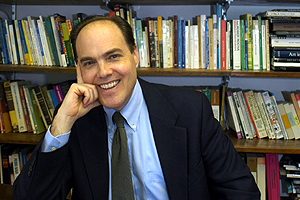
Stanford University, PhD '86
Prof. Borges has retired and no longer directs BA theses or accepts new graduate students.
BIOGRAPHY
Dain Borges works on nineteenth- and twentieth-century Latin American culture and ideas. His current research project, "Races, Crowds, and Souls in Brazilian Social Thought, 1880–1920," centers on the ways in which Brazilian intellectuals used race sociology and social psychology to understand popular religion and politics. He teaches seminars and courses on Latin American history, comparative nineteenth-century transformations, ideologies of national identity, and culture in the African diaspora.
Recent Research / Recent Publications
-
“Mockery and Piety in Eça de Queirós and Machado de Assis.” Revista de Estudos Literários [Coimbra] (2016).
-
“Catholic Vanguards in Brazil.” In Local Church, Global Church: Catholic Activism in Latin America from Rerum Novarum to Vatican II, edited by Stephen J. C. Andes and Julia G. Young. Washington, DC: Catholic University of America Press, 2015.
-
"Healing and Mischief: Witchcraft in Brazilian Law and Literature, 1890–1922." In Crime and Punishment in Latin America, edited by Carlos Aguirre, Gilbert Joseph, and Ricardo Salvatore. Durham, NC: Duke University Press, 2001.
-
Esau and Jacob, by Machado de Assis. New York: Oxford University Press, 2000 (editor).
-
"A Mirror of Progress." In The Brazil Reader: History, Culture, Politics, edited by Robert M. Levine and John J. Crocitti. Durham, NC: Duke University Press, 1999.
-
"Intellectuals and the Forgetting of Slavery in Brazil." Annals of Scholarship 11 (1996).
-
"The Recognition of Afro-Brazilian Symbols and Ideas, 1890–1940." Luso-Brazilian Review 32 (1995).
-
"Puffy, Ugly, Slothful, and Inert: Degeneration in Brazilian Social Thought, 1880–1940." Journal of Latin American Studies 25 (1993).
-
The Family in Bahia, Brazil, 1870–1945. Stanford: Stanford University Press, 1992.
-
Discusses "Natural Disasters and Social Responses" at the Summer Teacher Institute, University of Chicago [video, 50 mins]
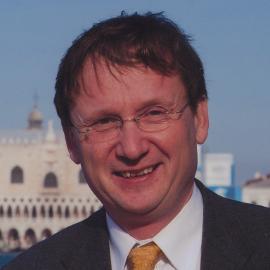
University of Cambridge, PhD '92
BIOGRAPHY
Adrian Johns is the author of The Science of Reading: Information, Media, and Mind in Modern America (Chicago, 2023), Death of a Pirate: British Radio and the Making of the Information Age (Norton, 2010), Piracy: The Intellectual Property Wars from Gutenberg to Gates (Chicago, 2009), and The Nature of the Book: Print and Knowledge in the Making (Chicago, 1998), and co-editor (with James Evans) of Beyond Craft and Code: Human and Algorithmic Cultures, Past and Present (Osiris 38, 2023, forthcoming). He has also authored dozens of papers in the histories of science, the book, media, and information. The Nature of the Book won the Leo Gershoy Award of the American Historical Association, the John Ben Snow Prize of the North American Conference on British Studies, the Louis Gottschalk Prize of the American Society for Eighteenth-Century Studies, and the SHARP Prize for the best work on the history of authorship, reading, and publishing. Piracy won the Laing Prize and was selected as Book of the Year by the American Society for Information Science and Technology. Johns has been awarded Guggenheim, ACLS, NEH, and NSF fellowships. Educated in Britain at the University of Cambridge, he has also taught at the University of Kent at Canterbury, the University of California, San Diego, and the California Institute of Technology.
Recent Research / Recent Publications
The Science of Reading: Information, Media, and Mind in Modern America (Chicago: University of Chicago Press, 2023).
Beyond Craft and Code: Human and Algorithmic Cultures, Past and Present (Osiris 38, 2023). (Co-edited with James Evans.)
Presentation on "The Science of Reading and the Making of the Information Society," UIUC, March 2024 (video).
Presentation on “After Hours: Historia Coelestis,” Linda Hall Library, November 2022 (video).
Publication of “Piracy in the Book Trade” [essay review of Robert Darnton, Piracy and Publishing], American Historical Review 127:3 (September 2022), 1433–1435.
“Watching Readers Reading.” Textual Practice 35:9 (October 2021), 1429-52.
“Privacy.” In A. Blair, P. Duguid, A.-S. Goering, and A. Grafton (eds.), Information: A Historical Companion(Princeton: Princeton University Press, 2021), 686-93.
“The New Rules of Knowledge” (with James Evans). An introduction to a tryptich of papers on algorithmic epistemology. Critical Inquiry 46:4 (Summer 2020), 806-12.
“Lay Assaying and the Scientific Citizen.” Proceedings of the American Philosophical Society 160, no. 1 (Mar. 2016): 18–25.
”The Coming of Print to Europe.” In The Cambridge Companion to the History of the Book, edited by L. Howsam, 107–24. Cambridge: Cambridge University Press, 2015.
“Intellectual Property.” In Globalization in Practice, edited by N. Thrift, A. Tickell, S. Woolgar, and W. H. Rupp, 183–88. Oxford: Oxford University Press, 2014.
“The Uses of Print in the History of Science.” Papers of the Bibliographical Society of America 107, no. 4 (Dec. 2013): 393–420.
“The Ecological Origins of Copyright Skepticism.” World Intellectual Property Organization Journal 5, no. 1 (2013): 54–64.
“The Information Defense Industry and the Culture of Networks.” Amodern 2: Network Archaeology (2013).
Death of a Pirate: British Radio and the Making of the Information Age. New York: W.W. Norton, 2010.
Piracy: The Intellectual Property Wars from Gutenberg to Gates. Chicago: University of Chicago Press, 2009.
- Gordon J. Laing Award, University of Chicago Press
- Book of the Year Award, American Society for Information Science and Technology
- Outstanding Academic Title Awards, Choice Magazine
The Nature of the Book: Print and Knowledge in the Making. Chicago: University of Chicago Press, 1998.

Stanford University, PhD '00
Emily Lynn Osborn is Associate Professor in the Department of History and the College.
Affiliated Faculty, Center for Gender and Sexuality Studies
Faculty Affiliate, Center for the Study of Race, Politics, and Culture
Faculty Board, Center for International Social Science Research
Faculty Board, Pozen Family Center for Human Rights
BIOGRAPHY
Osborn is a historian of Africa, with a particular interest in precolonial and colonial West Africa. She is currently the Faculty Director of the Senegal study abroad program, and she has also served as co-director of the Committee on African Studies, chair of the College’s British fellowships committee, and on the Faculty Boards of the Center for International Social Science Research and the Pozen Family Center for Human Rights. She is also the Faculty Director of the Social Sciences Postdoctoral Teaching Fellows program and an editor of The Journal of African History.
Her first book, Our New Husbands Are Here: Households, Gender, and Politics in a West African State from the Slave Trade to Colonial Rule, uses gender analysis to investigate the intertwined history of household making and statecraft in Kankan, Upper Guinée (located in Guinea). Other topics on which Osborn has published include the history of technology transfer and diffusion in West Africa; the role of intermediaries in colonial rule, the Anthropocene in Africa; the history and cultural significance of the color red in the Atlantic world; and the relationship in West Africa of containers and mobility. She has also researched the effort by the United States government in the 1950s and 1960s to export the model of the land grant university to Africa.
Osborn earned her A.B. from the University of California, Berkeley, and her Ph.D. from Stanford University. Her research has been supported by Fulbright IIE and Fulbright-Hays fellowships and by the American Council of Learned Societies and Social Science Research council. Before coming to the University of Chicago, Osborn served as the Carl E. Koch Assistant Professor of History at the University of Notre Dame.
TEACHING INTERESTS
At the University of Chicago, Prof. Osborn teaches courses on precolonial, colonial, and postcolonial African history; graduate and undergraduate seminars on African historiography; oral sources of history; gender and state-craft; as well as histories on enslavement, the transatlantic commerce in enslaved peoples, and the making of the Atlantic world.
Recent Research / Recent Publications
- “Containers and Mobility in West Africa.” In "On Containers," edited by Andrew Shyrock and Daniel Lord Smail. Special issue, History and Anthropology 29, no. 1 (2018): forthcoming.
- Editor, The Journal of African History.
- "Containers, Energy, and the Anthropocene in West Africa." In Economic Development and Environmental History in the Anthropocene: Perspectives on Asia and Africa, edited by Gareth Austin. New York: Bloomsbury, 2017.
- "From Bauxite to Cooking Pots: Aluminum, Chemistry, and West African Artisanal Production." In "Exploring Global History through the Lens of History of Chemistry," edited by Lissa Roberts. Special issue, History of Science 54, no. 4 (Dec. 2016): 425–42.
- "Red Echoes of Enslavement: Cochineal Red, West Africa, and the Slave Trade." In A Red Like No Other: How Cochineal Colored the World, edited by Carmella Padilla and Barbara Anderson. New York: Skira Rizzoli, 2015.
- "Work and Migration." In The Oxford Handbook of Modern African History, edited by Richard Reid and John Parker. Oxford: Oxford University Press, 2013.
- Our New Husbands Are Here: Households, Gender, and Politics in a West African State from the Slave Trade to Colonial Rule. Athens: Ohio University Press, New African Histories, 2011.
- "Casting Aluminium Cooking Pots: Labour, Migration and Artisan Production in West Africa’s Informal Sector, 1945–2005." African Identities 7, no. 3 (Fall 2009): 373–86.
- "Loyalty, Perfidy, and Scandal in Guinée Française: The Noirot-Penda Affair." In Intermediaries, Interpreters and Clerks: African Employees and the Making of Colonial Africa, edited by Benjamin N. Lawrance, Emily Lynn Osborn, and Richard L. Roberts. Madison: University of Wisconsin Press, 2006.
- Coauthor with Richard Roberts and Benjamin Lawrance. "Introduction: Intermediaries and the Making of Colonial Africa." In Intermediaries, Interpreters and Clerks: African Employees and the Making of Colonial Africa, edited by Benjamin N. Lawrance, Emily Lynn Osborn, and Richard L. Roberts. Madison: University of Wisconsin Press, 2006.
- "'Rubber Fever,' Commerce and French Colonial Rule in Upper Guinée, 1890–1913." Journal of African History 45 (2004): 445–65.
- "'Circle of Iron': African Colonial Employees and the Interpretation of Colonial Rule in French West Africa, 1890–1910." Journal of African History 44 (2003): 27–48. Reprinted in The Rise and Fall of Modern Empires: Social Organisation, vol. I, edited by Owen White. Farnham, England: Ashgate, 2013.
- Delivered convocation address, Graham School [20 mins]
- Participates in Q&A on how to teach the Anthropocene, EuropeNow, with syllabus
- Received 2016 Quantrell Award for Excellence in Undergraduate Teaching
- Coorganized "Climate Change: Disciplinary Challenges to the Humanities and Social Sciences"
- Organized "Global Midwest" conference
- Discusses effective public speaking for AHA Today (blog)
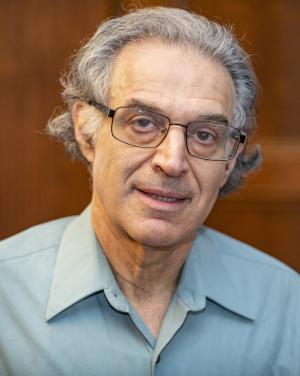
Yale University, PhD' 88
BIOGRAPHY
Kenneth Pomeranz is a University Professor of History and in the College; he previously taught at the University of California, Irvine. His work focuses mostly on China, though he is also very interested in comparative and world history. Most of his research is in social, economic, and environmental history, though he has also worked on state formation, imperialism, religion, gender, and other topics. His publications include The Great Divergence: China, Europe, and the Making of the Modern World Economy (2000), which won the John K. Fairbank Prize from the AHA, and shared the World History Association book prize; The Making of a Hinterland: State, Society and Economy in Inland North China, 1853–1937 (1993), which also won the Fairbank Prize; The World that Trade Created (with Steven Topik, first edition 1999, 3rd edition 2012), and a collection of his essays, recently published in France. He has also edited or co-edited five books, and was one of the founding editors of the Journal of Global History. He is a fellow of the American Academy of Arts and Sciences and has received fellowships from the Guggenheim Foundation, the American Philosophical Society, American Council of Learned Societies, the Institute for Advanced Studies, the National Endowment for the Humanities, and other sources. His current projects include a history of Chinese political economy from the seventeenth century to the present, and a book called Why Is China So Big? which tries to explain, from various perspectives, how and why contemporary China's huge land mass and population have wound up forming a single political unit.
Recent Research / Recent Publications
Coeditor with J. R. McNeill. Production, Destruction, and Connection, 1750–Present. Part 1: Structures, Spaces, and Boundary Making, The Cambridge World History, vol. VII (Cambridge: Cambridge University Press, 2015.
Coeditor with J. R. McNeill. Production, Destruction, and Connection, 1750–Present. Part 2: Shared Transformations? The Cambridge World History, vol. VII (Cambridge: Cambridge University Press, 2015.
Coeditor with Laura J. Mitchell and James B. Given. Worlds Together, Worlds Apart: A Companion Reader. New York: W.W. Norton, 2011.
La Force de L’Empire: Révolution industrielle et écologie, ou pourquoi l’angleterre a fait mieux que la Chine. Edited, with an introduction, by Philippe Minard. Alfortville: Éditions ère, 2009.
The book collects various pieces of my work previously published in English, with some previously unpublished material added in Chapter II.
Editor, The Pacific in the Age of Early Industrialization. Farnham: Ashgate Publishing, 2009.
Coeditor with Kate Merkel-Hess and Jeffrey Wasserstrom. China in 2008: A Year of Great Significance. Washington, DC: Rowman and Littlefield, 2009.
"Introduction: the Environment and World History" and "The Transformation of China's Environment, 1500–2000." In The Environment and World History, 1500–2000. Coedited with Edmund T. Burke III, 3–32, 118–164. Berkeley: University of California Press, 2009.
Coeditor with John McCusker, Stanley Engerman, David Hancock, and Lewis Cain. Encyclopedia of the History of World Trade. Farmington Hills, MI: Thomson Gale 2005.
The Great Divergence: China, Europe and the Making of the Modern World Economy. Princeton, NJ: Princeton University Press, 2000.
Coauthor with Steven Topik. The World that Trade Created: Society, Politics and an Emerging World Economy, Armonk, NY: M.E. Sharpe, 1999; fourth edition, 2017.
The Making of a Hinterland: State, Society and Economy in Inland North China, 1853–1937. Berkeley: University of California Press, 1993.
- "Repenser le changement économique de longue durée: La Chine, l’Europe, et l’historie comparée." In L'histoire économique en mouvement: entre héritages et renouvellements, edited by Jean Claude Daumas, 293–310. Villieneuve d’Ascq: Presses universitaires du Septentrion, 2012.
- "Contemporary Development and Economic History: How Do We Know What Matters?" Economic History of Developing Regions, special issue for World Economic History Congress 27, no. 1 (2012): 134–145.
- "The Great Divergence debate at 10—and at 250." Historically Speaking 12, no. 4 (September/October, 2011). Response to a forum on the tenth anniversary of the publication of The Great Divergence.
- "Areas, Networks, and the Search for 'Early Modern' East Asia." In Comparative Early Modernities, edited by David L. Porter. London: Palgrave, 2012.
- "Labor-Intensive Industrialization in the Yangzi Delta: Late Imperial Patterns and their Modern Fates." In Labor-Intensive Industrialization in Global History, edited by Kaoru Sugihara and G.M. Austin. London: Routledge, 2012.
- Coauthor with Daniel Segal. "World History: Departures and Variations." In A Companion to World History, edited by Douglas Northrop. New York: Wiley-Blackwell, 2012.
- "Advanced Agriculture." In The Oxford Handbook of World History, edited by Jerry H. Bentley, 246–266. Oxford: Oxford University Press, 2011.
- "Labeling and Analyzing Historical Phenomena: Some Preliminary Challenges." Cliodynamics: The Journal of Theoretical and Mathematical History 2, no. 1 (March 2011): 3–27.
- "Commerce." In The Oxford Concise Companion to World History, edited by U.C. Rublack, 105–128. Oxford, Oxford University Press, 2011.
- "Their Own Path to Crisis? Social Change, State-Building, and the Limits of Qing Expansion, ca. 1770–1840." In The Age of Revolutions in a Global Context, edited by David Armitage and Sanjay Subrahmanyam, 189–208. New York: Palgrave, 2010.
- "Putting Modernity in Its Place(s): Reflections on Jack Goody's The Theft of History." Theory, Culture, and Society 26, no. 7/8 (December 2009): 32–51.
- "Shang xia Taishan—Zhongguo minjian xinyang zhengzhi zhong de Bixia yuanjun (yue gongyuan 1500 nian zhi 1949 nian." (Up and Down Mt. Tai—Bixia Yuanjun in the Politics of Chinese Popular Religion, ca 1500–1949) Xin shixue 20, no. 4 (December, 2009): 169–215.
- "Le machinisme induit-il une discontinuité historique? Industrialisation, modernité précoce et formes du changement économique dans l’histoire globale." In Histoire globale, mondialisations, capitalisme, edited by P. Beaujard, L. Berger, and P. Norel, 335–373. Paris: La Découverte, 2009.
- "Calamities Without Collapse: Environment, Economy and Society in China, ca. 1800–1949." In Questioning Collapse, edited by Patricia McAnany and Norman Yoffee. Cambridge: Cambridge University Press, 2009.
- "The Great Himalayan Watershed: Agrarian Crisis, Mega-Dams, and the Environment." New Left Review 58 (July/August 2009): 5–39 (short version). Longer version published in The Asia-Pacific Journal: Japan Focus (July 27, 2009). Abridged version published in Engineering World (August/September 2009): 32–42.
- "World History and Environmental History: Introducing an Agenda," and "China's State, Economy and Environment in Global Perspective, 1400–2000." In Environmental History and World History, edited by both in Edmund Burke III and Kenneth Pomeranz, 3–32, 118–164. Berkeley: University of California Press, 2009.
- "Introduction: Industrialization and the pacific world ca. 1800-1930 - and beyond" In The Pacific in the Age of Early Industrialization, edited by Kenneth Pomeranz, xiii–xlix. Farnham: Ashgate, 2009.
- "Rekishi wa gurobaru kenkyu ni dono yō na kōken ga de suru ka?" (What Does History Have to Offer to Global Studies?). In Gurobaru Hisutori no Chōsen (Challenges of Global History), edited by Mizushima Tsukasa, 46–55. Tokyo: Yamakawa Shuppansha, 2008.
- "Land Markets in Late Imperial and Republican China." Continuity and Change 23, no. 1 (April 2008): 101–150.
- "Chinese Development in Long-run Perspective." Proceedings of the American Philosophical Society 152, no. 1 (March 2008): 83–100.
- "Social History and World History: From Daily Life to Patterns of Change." Journal of World History 18, no. 1 (March 2007). Chinese translation, 2009
- "Orthopraxy, Orthodoxy, and the Goddess(es) of Taishan." Modern China 33, no. 1 (January 2007): 22–46.
- "Limian jingji: Zhonghua diguo wanqi de nongcun shouru, feiwendingxing yu xigbie guifan" (The Economics of Respectability: Rural Incomes, Instability, and Gender Roles in Late Imperial China). Jindai Zhongguo funu shi yanjiu (Research on Modern Chinese Women’s History) 14 (December 2006): 205–241. A revised and translated version of "Women's Work and the Economics of Respectability." In Gender in Motion, edited by Bryna Goodman and Wendy Larson. Lanham, MD: Rowman and Littlefield, 2005.
- "Without Coal? Colonies? Calculus? Europe, China, and the Industrial Revolution." In Unmaking the West: "What-If" scenarios that Rewrite World History, edited by Ned Lebow, Geoffrey Parker, and Philip Tetlock, 241–276. Ann Arbor: University of Michigan Press, 2006.
- "Imperialism, Development, and 'Civilizing' Missions, Past and Present." Daedalus (April 2005).
- "Standards of Living in Eighteenth-Century China: Regional Differences, Temporal Trends, and Incomplete Evidence." In Standards of Living and Mortality in Pre-Industrial Times, edited by Robert Allen, Tommy Bengtsson, and Martin Dribe. New York: Oxford University Press, 2005.
- "Zhuanbian de diguo: Zhonghua diguo moqi de falu, shehui, shangyehua he guojia xingcheng" (An Empire in Transition: Law, Society, Commercialization, and State Formation in Late Imperial China). Zhongguo Xueshu 15 (Winter 2004).
- "Shijie jingji shi zhong de jinshi Jiangnan: bijiao yu zonghe guancha" (Early Modern Jiangnan in Global Economic History: Comparative and Integrative Perspectives). Lishi yanjiu 284 (August 2003): 3–48.
- "Women's Work, Family, and Economic Development in Europe and East Asia: Long-term Trajectories and Contemporary Comparisons." In The Resurgence of East Asia: 500, 150, and 50 Year Perspectives, edited by Giovanni Arrighi, Takeshi Hamashita, and Mark Selden, 124–172. London and New York: Routledge, 2003.
- "Beyond the East-West Binary: Resituating Development Paths in the Eighteenth Century World." Journal of Asian Studies 61, no. 2 (May 2002): 539–590.
- "Political Economy and Ecology on the Eve of Industrialization: Europe, China, and the Global Conjuncture." American Historical Review 107, no. 2 (April 2002): 425–446. Translated and reprinted in Globalgeschichte: Theoriean, Ansätze, Themen, vol. 1, edited by Sebastian Conrad, Andreas Eckert and Ulrike Freitag. Frankfurt: Campus Verlag, 2007. Also translated and reprinted in La Rivoluzione industriale tra l’Europa e il mondo, edited by Tommaso Detti and Giovanni Gozzinni. Milan: Pearson Paravia Bruno Mondadori, 2009.
- "Is there an East Asian Development Path? Long-Term Comparisons, Constraints, and Continuities." Journal of the Economic and Social History of the Orient 44, no. 3 (2001): 322–362. Abridged and translated versions published in Japanese and German, 2003.
- "Development, Disaggregation and Decline: Re-thinking the Chinese Economy, ca. 1730–1930." Itinerario (Winter 2001): 29–74. Translated version published in Chinese, 2010.
- "Ritual Imitation and Political Identity in North China: The Late Imperial Legacy and the Chinese National State Revisited." Twentieth-Century China (formerly Republican China) 23, no. 1 (Fall 1997): 1–30.
- "'Gentry Merchants' and Partnership Revisited: Family, Firm, and Financing in the History of the Yutang Enterprises of Jining, 1779–1956." Late Imperial China 18, no. 2 (June 1997): 1–38.
- "Power, Gender, and Pluralism in the Cult of the Goddess of Taishan." In Culture and State in Chinese History, edited by R. Bin Wong, Theodore Huters, and Pauline Yu. Stanford: Stanford University Press, 1997.
- "Local Interest Story: State‑Making and Capital Markets in Shandong Province, 1900–1937." In Chinese History in Economic Perspective, edited by Thomas Rawski and Lillian Li, 295–318. Berkeley: University of California Press, 1992.
- "Water to Iron, Widows to Warlords: The Handan Rain Shrine in Modern Chinese History." Late Imperial China 12, no. 1 (June 1991).
- Receives Dan David Prize, 2019.
- Publishes 4th edition (with Steven Topik) of The World that Trade Created (2017)
- Publishes Production, Destruction, and Connection, 1750–Present. Part 1: Structures, Spaces, and Boundary Making and Part 2: Shared Transformations?
- Leads Mellon Foundation Pilot Project on Professional Careers for Historian
- L'Ecole des Hautes Etudes en Sciences Sociales selects The Great Divergence as one of the top 40 books of the last 40 years.
- Delivers the Schouler Lectures on "Why Is China So Big?" at Johns Hopkins University (2014)
- Speaks on "Property Rights and Community Membership in the Late Imperial and Twentieth-Century Yangzi Delta," Neubauer Collegium, University of Chicago (2014) [video, 47 minutes]
- Delivers the University of Chicago Harper Lecture on the "Unique Patterns of Chinese Economic Development" [video, 85 minutes]
- Serves as president of the American Historical Association
